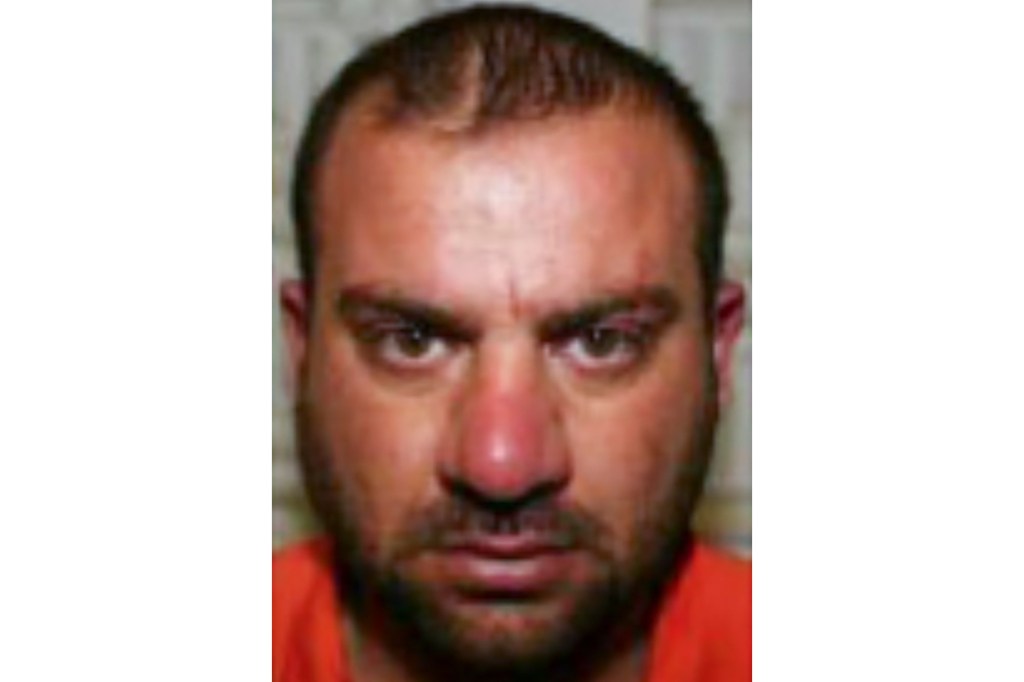As a child in London, Yassin Yassin would probably never have expected to end up on the front lines of a conflict in Iraq. Besides needing to leave the ravages of Saddam Hussein’s regime to join family in the UK, his life had been normal enough. Now aged 24, he’s back in London from a trip to Iraq where he’d photographed the armed groups fighting on behalf of the government—they prefer not to be called militia, Yassin says – as they worked to keep ISIS from advancing on their base. The project was part of Yassin’s effort to understand what had become of the country he’d left behind, and the citizens who’d armed themselves against ISIS in a bid to keep from losing all control.
Spending time with three groups—Kataib Jund Al Imam, Tayyar Al Risali and Forket al imam Ali—he picked up a sense of not only the quietly persistent dangers of life at battle but the almost surprisingly camaraderie those conditions created. “At first I was scared as I’ve never been exposed to any real danger but as time went on and seeing how relaxed these soldiers were, I eased up a little,” he says. But after having a building calmly pointed out to him in the near distance that was being struck by ISIS, he realised the experience was indeed that of a war zone. Here he shares some of his photos and memories of his five weeks in Iraq earlier this year.
Videos by VICE
VICE: How did you manage to get such close access to the militia?
Yassin Yassin: I flew out of the UK and literally just started going into the offices of these militias, asking if I could document what they were doing. It was hard, obviously. A lot of people didn’t trust me, in a nice way—they thought, ‘You could be a spy.’ But one of my family members knew a TV reporter who knew people who knew people, and got my foot in the door.
What was a typical day like at the base?
A typical day is hard to describe, because each was so different. I was there just before the liberation of Fallujah—it had fallen in January 2014, before Mosel followed on the 10th of June and Tikrit then fell to Isis on the 13th of June. While I was there, Hashd Al Shaabi were in defensive mode, and I was out on the front lines with them as they aimed to keep the enemy out.
How did that work? What did you observe, or what did they let you see?
Each militia is split into two: the soldiers and the media team, who took me up to their base at Camp Speicher in Tikrit. I met a bomb diffusing engineer working with this group—he refused to be photographed, for security reasons—who told me that he used to work as a translator for the US Army, during the Iraq war.
Much later, I also met another soldier at a different location who didn’t know the bomb engineer, but had fought for the Mahdi army during the 2003 war. He’d been affiliated with a group who gave Americans a hard time, who killed a lot of soldiers and kidnapped Iraqi translators—though he didn’t take part in that. I thought it was interesting that these guys with totally different views had joined together to fight one common enemy. All the people in Hashd Al Shaabi have one thing in common: the goal of destroying ISIS. They were all positive, treated me with respect.
Whose stories stuck with you?
There was a guy called Malik (above) who I met at Camp Speicher. He’s a jihadi fighter in his mid-twenties, from south Iraq, and had been in the movement for a year by the time I photographed him. He told me about a pact he’d made with his four older brothers: if he was to fall and lose his life, his next brother would replace him, and so on until they were all gone. He had the qualities of a friend—he was a nice guy, he was warm, we kept in touch after we parted ways. But at the same time, I saw a different side to him. I’d forget that he was a serious killing machine until he showed me the photos and videos of his time in battle.
Given your background, how did you make sense of what you saw?
As a Brit-Iraqi, it’s really just sad to see what’s happened. When you go out there, and see the conditions people live in—with the corruption, dirty streets, poor services—you feel powerless. But this project taught me one thing: Iraqis are currently going through a lot but are incredibly strong and passionate people who can still smile and laugh through it. Each day in Baghdad feels like Russian roulette. If you’re literally, if you’re at the wrong place at the wrong time, you’re gone. But that doesn’t stop people. They can’t stay at home and do nothing they have to live their lives.
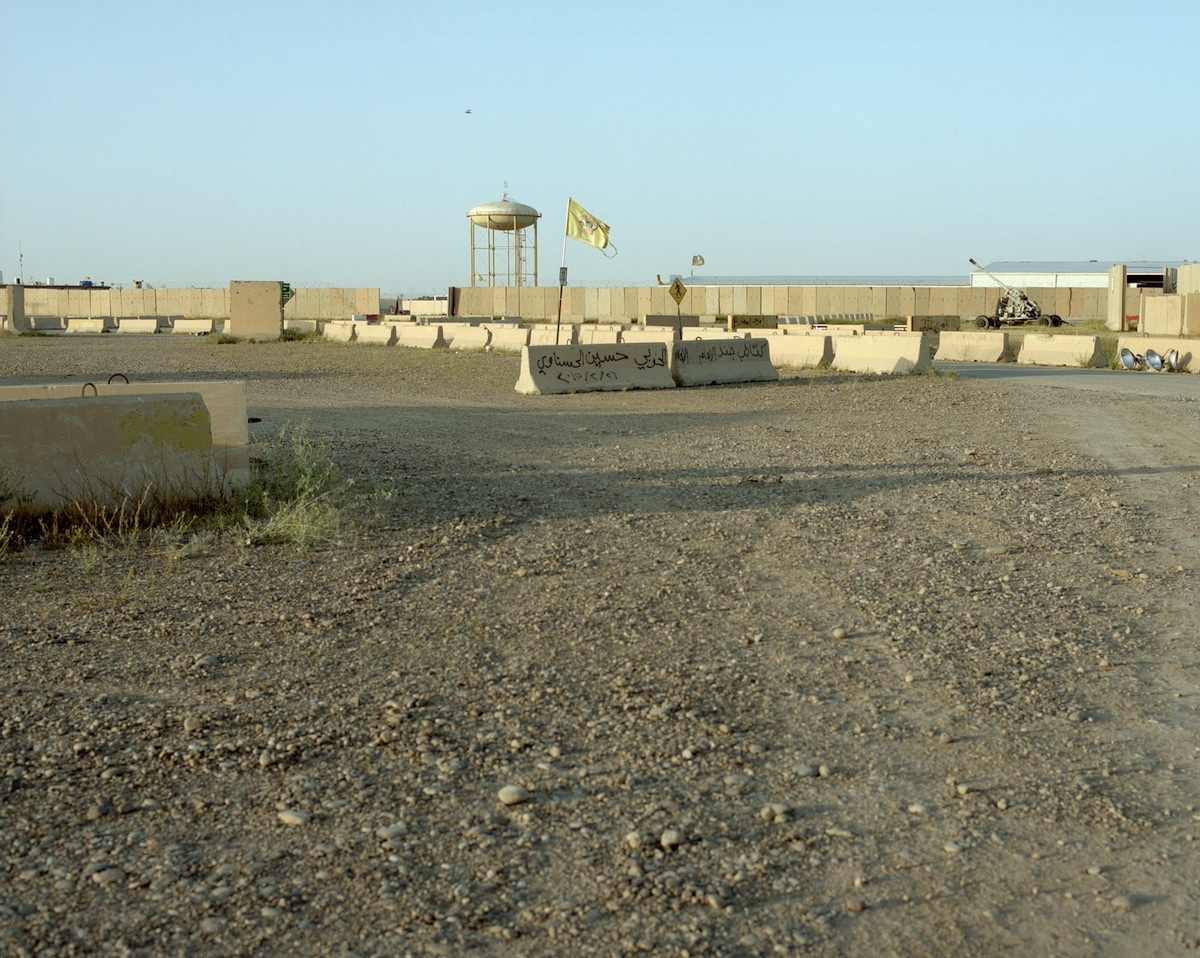
This is Camp Speicher, the military base named after 33-year-old US lieutenant commander Michael Scott Speicher, who was shot down and killed during the 1991 Gulf War.
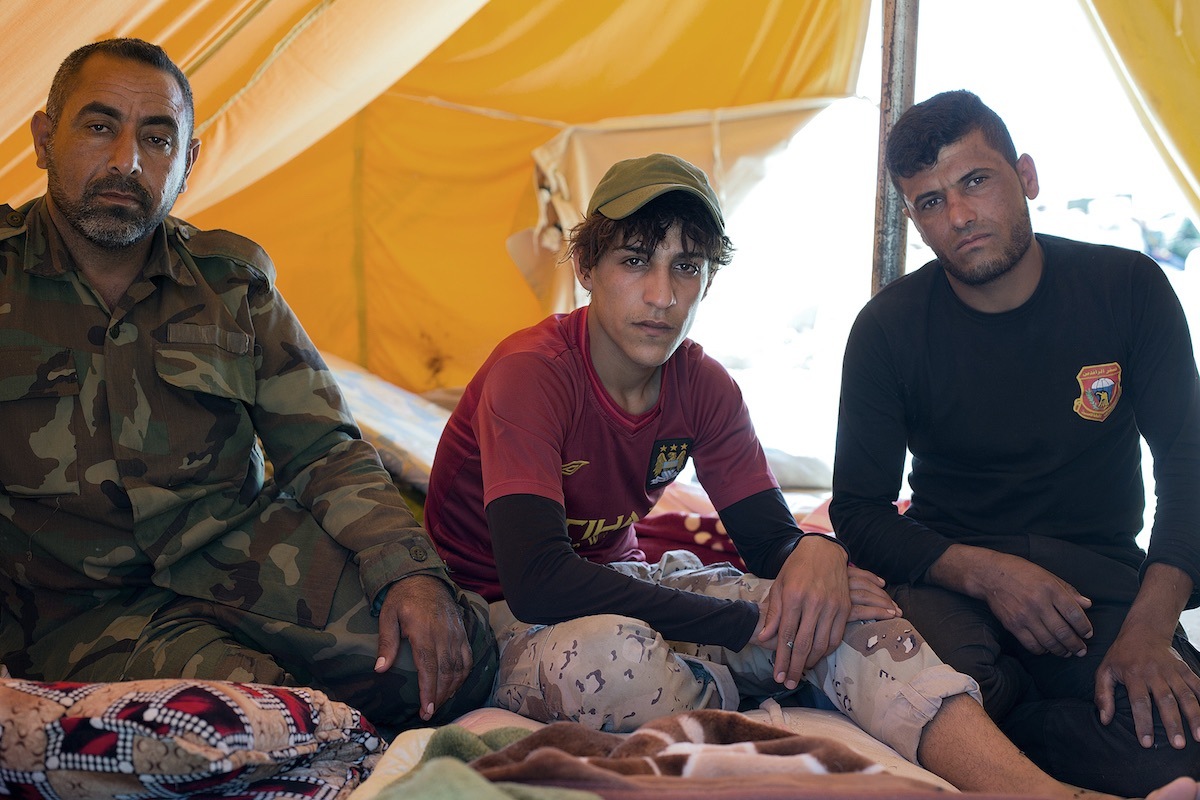
These men are from three generations of Jihadi fighters, with the youngest wearing a Manchester City FC shirt.

Hashd Al Shaabi’s press team said that this is how they found the area around Saddam’s presidential palaces in Tikrit.


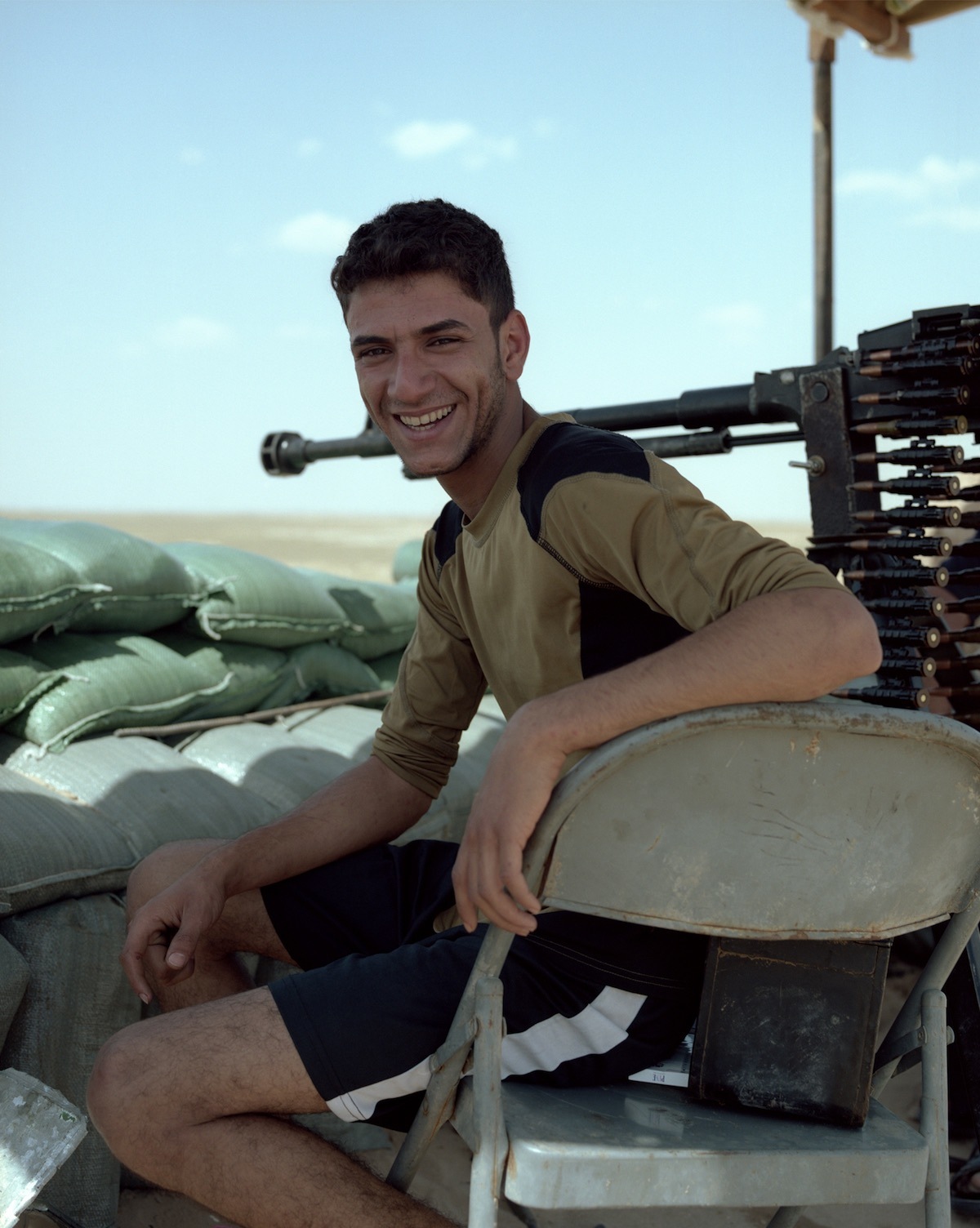
When I asked if I could take his photograph, this young man just nodded, continued to smile and stayed in conversation with his fellow soldiers like he would at a friend’s gathering. If it weren’t for the anti-vehicle 50cal machine gun behind him, it could be an everyday snapshot from a party.
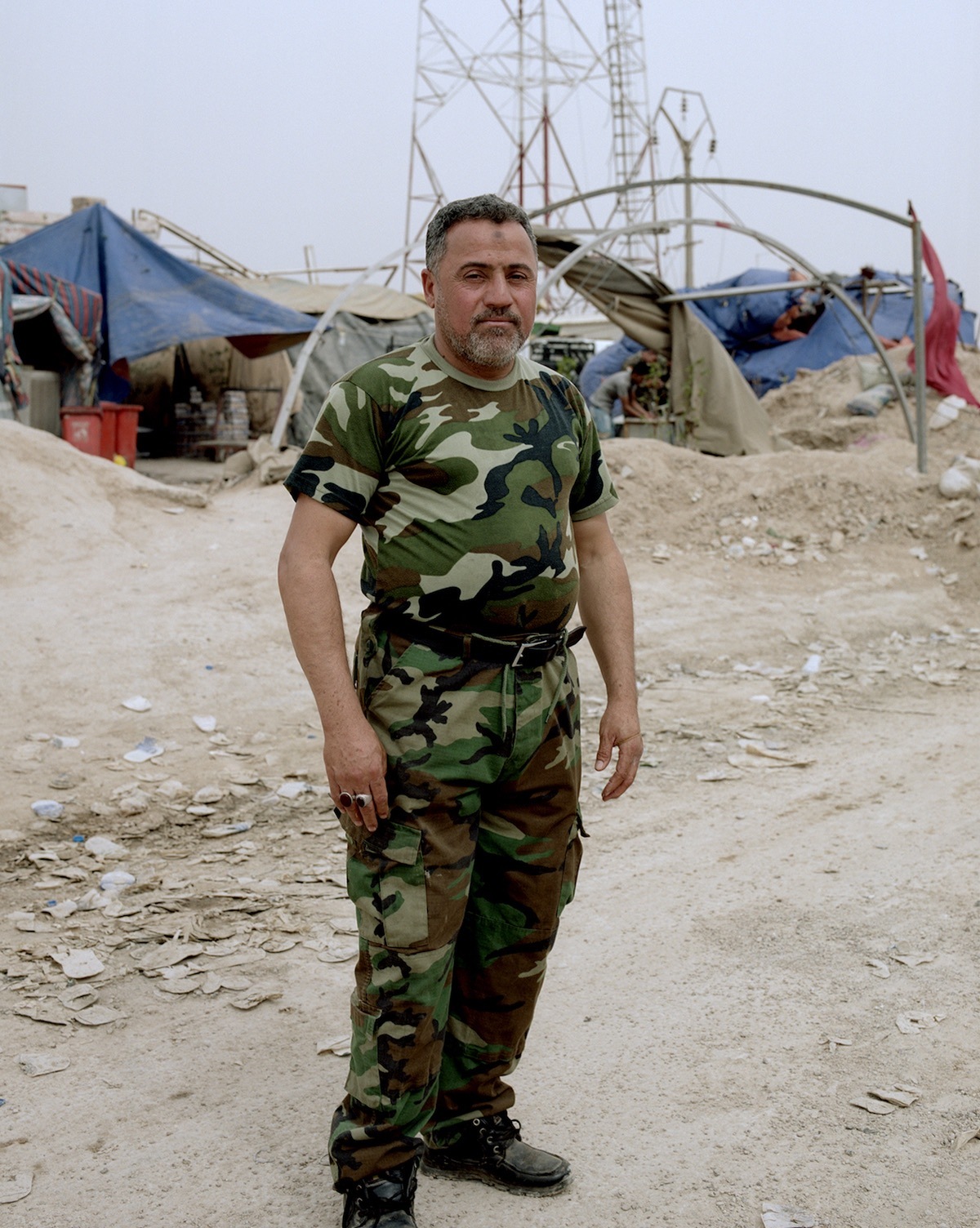
This is tribe leader Sheikh Abdul Adheem, outside a ‘mokib’ – or charitable service station – in Saqlawia, central Iraq. He runs this site as a 24/7 buffet where soldiers can rest and pray, too. A small team works with him, with the whole operation funded by donations.
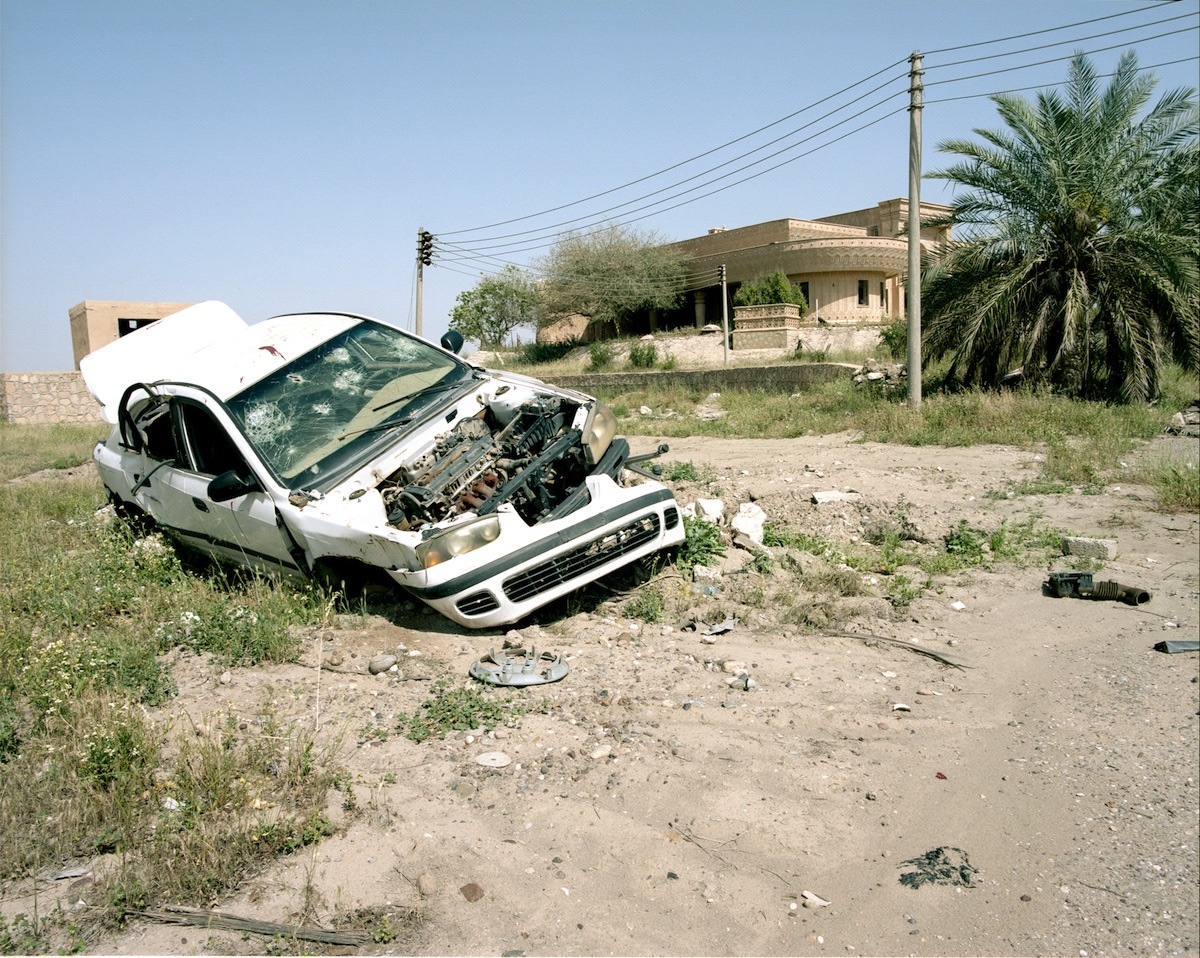
Some evidence of bullet holes and blood spray on the abandoned cars outside the presidential palaces.

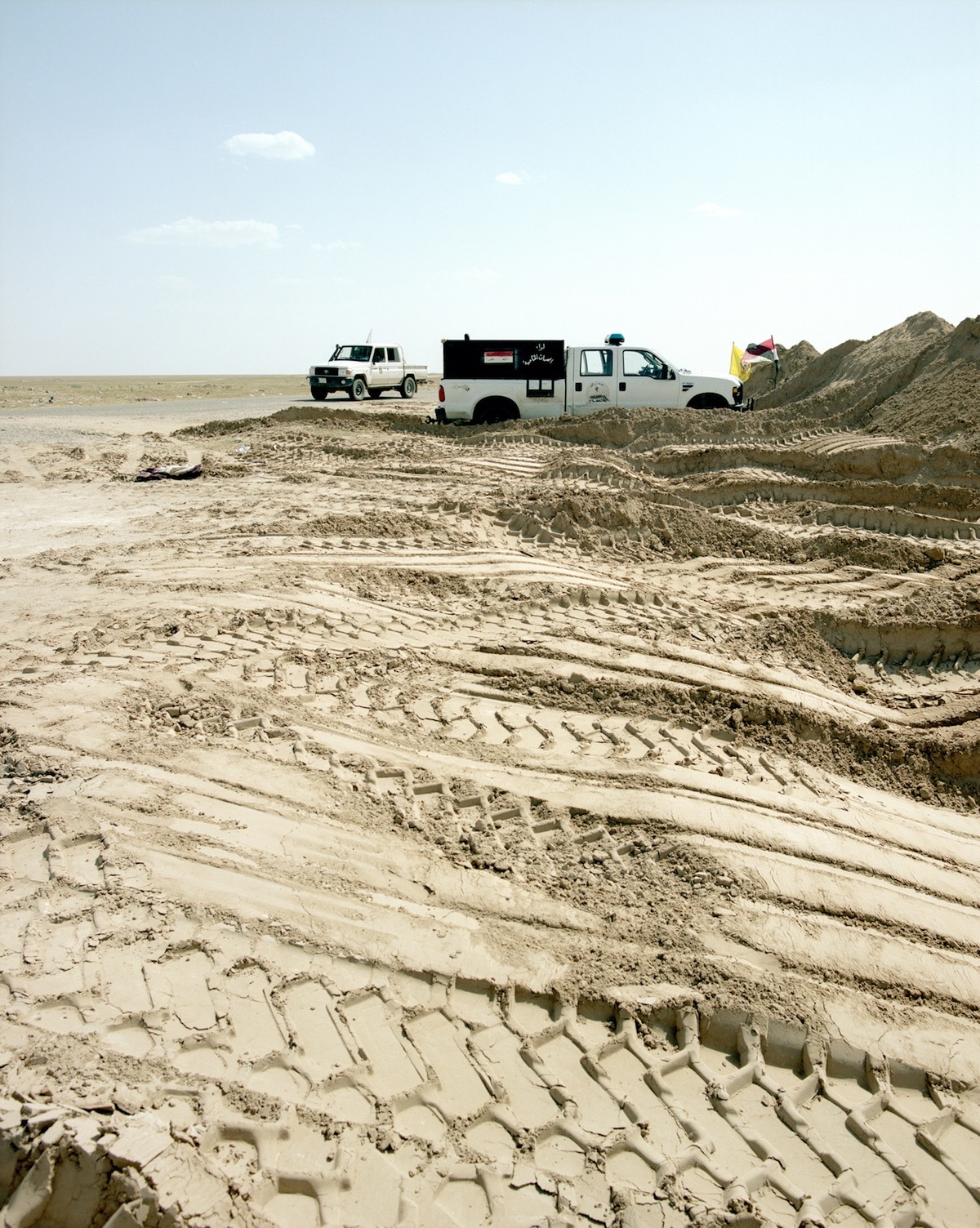
This is the satir (the protector) – basically a man-made dirt wall with a trench on the other side, to stop ISIS’s explosive vehicles from entering the Hashd Al Shaabi territory.

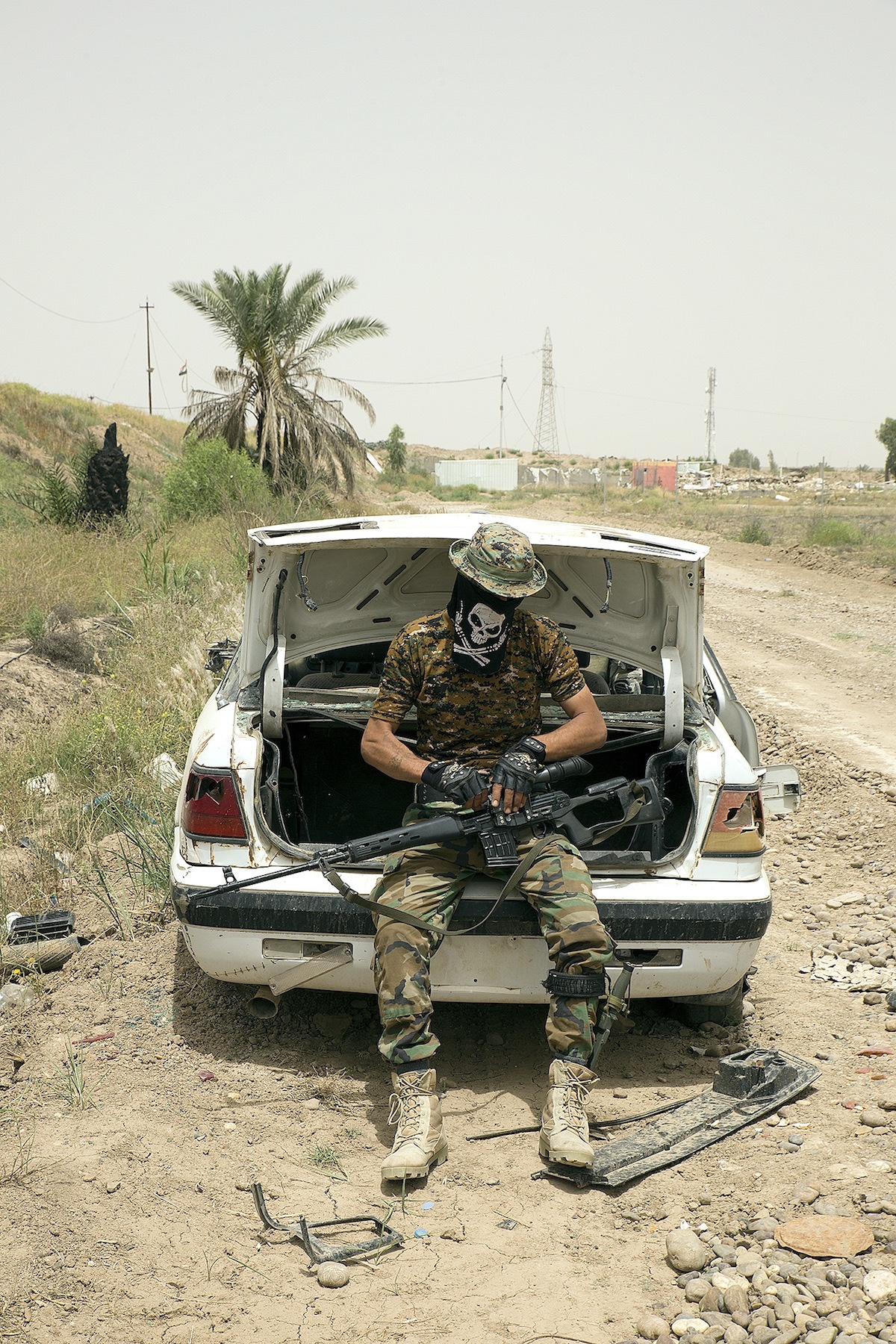
A sniper getting ready to go on the lookout behind the satir, about 150 metres from where ISIS snipers were believed to be stationed.


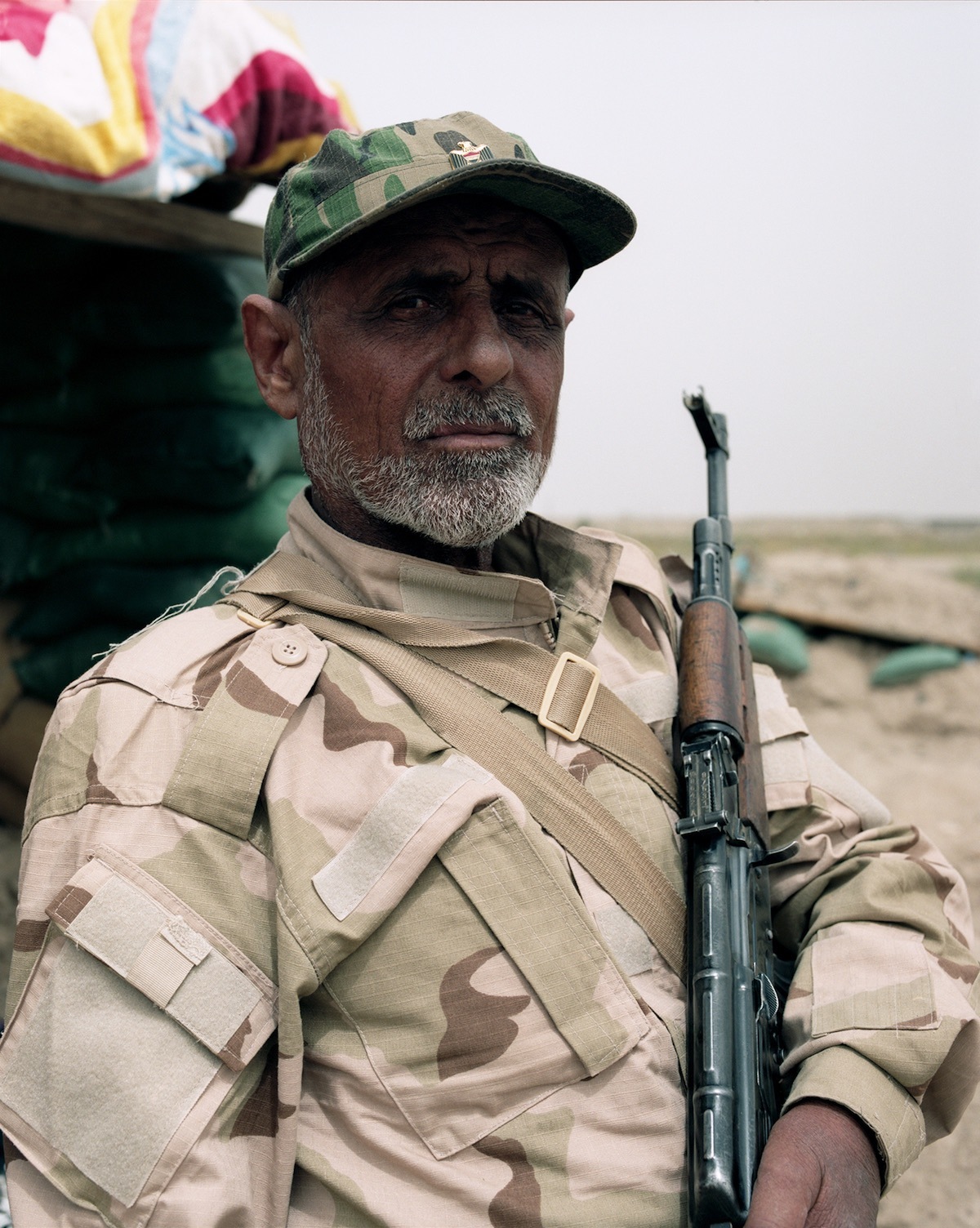
Meet Hussein, a 70-year-old Hashd Al Shaabi soldier in the Tayyar Al Risali militia. He told me he just wants to eliminate ISIS himself, to free Iraq from this catastrophe. He joined this militia because he said he’s too old for the military.

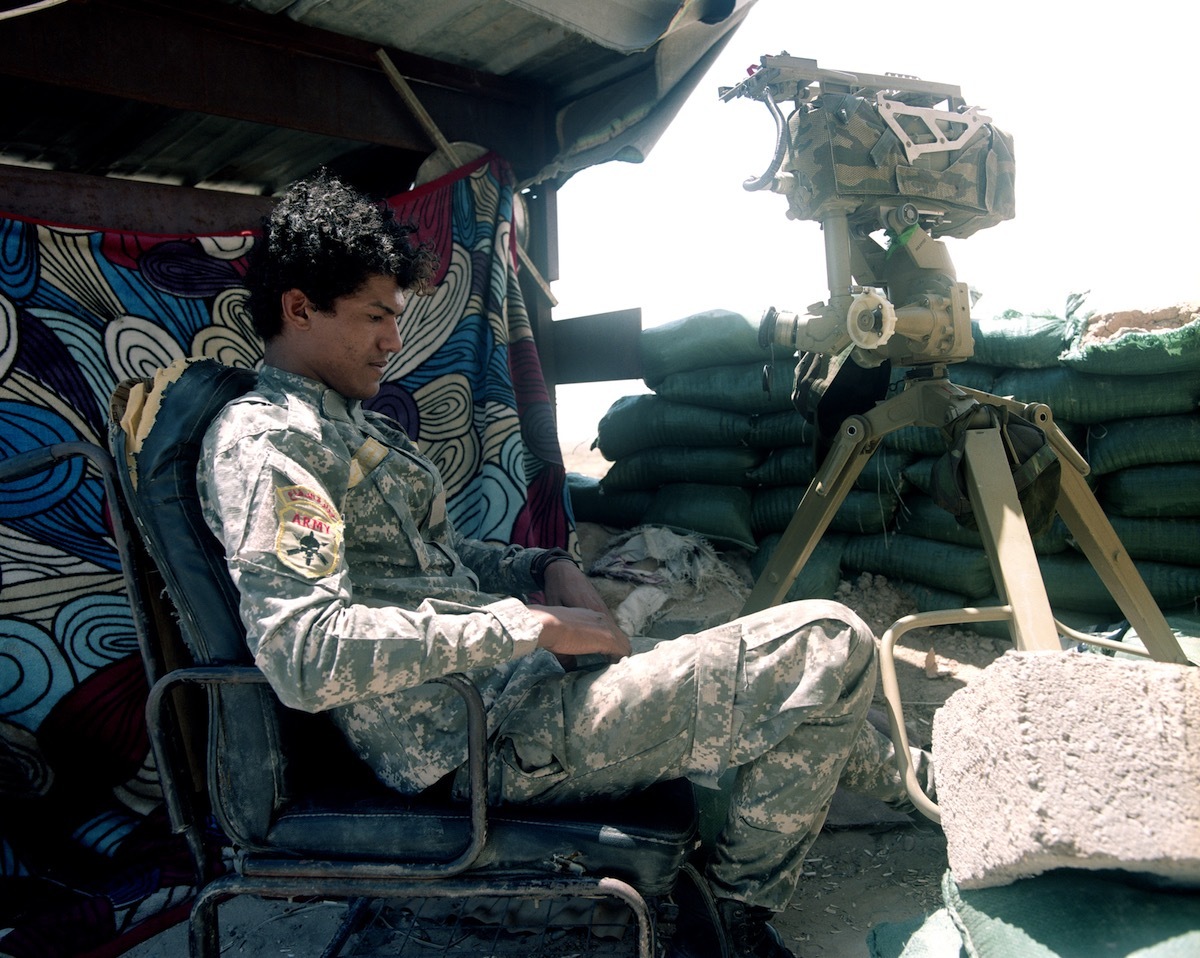
A soldier guards a tower at a car scrapyard in Karma. When I asked what he considers fun, he replied that he looks forward to liberating Al-Fallujah.



